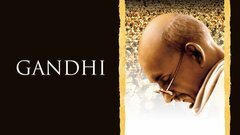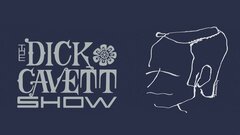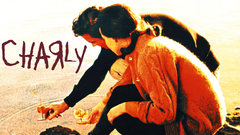Ravi Shankar

Musician • Composer
Birth Date: April 7, 1920
Death Date: December 11, 2012 — 92 years old
Birth Place: Benares, British India
Children: Norah Jones
Arguably the most widely recognized Indian musician in the world, Ravi Shankar was a sitar player and composer who helped to introduce the music of his country through his enormous catalog of recordings, the soundtracks to internationally acclaimed films like Satyajit Ray's "Apu Trilogy" (1955-56, 1959) and through his friendship with Beatle George Harrison. After decades of work in his native land as both a composer and orchestrator for Indian radio, he traveled West to bring sitar music to America and Europe.
Extensive touring and recording there introduced him to Harrison, who studied sitar under Shankar in the late 1960s. The Beatles connection allowed Shankar access to some of the biggest cultural events of the decade, including the Monterey International Music Festival and Woodstock Festival, but he preferred composing and lecturing to the spotlight. Shankar would remain in the public eye throughout the 1970s and 1980s, including an Oscar-nominated stint as composer for "Gandhi" (1980), but his role as performer and teacher became his preferred method of disseminating his music to the world. Still active in his ninth decade, his influence was felt on generations of world music performers, as well as through his own children, the pop-jazz singer Norah Jones and sitar player Anoushka Shankar.
Born Robindro Shaunkor Chowdhury in the city of Varansi, in Uttar Pradesh, India on April 7, 1920, he was the youngest of seven brothers born to Shyam Shankar, a Brahmin, or upper class, Bengali who worked as an administrator for the Maharaja of Jhalawar, and his first wife, Hemangini Devi. Shyam Shankar left India to work as a lawyer in London shortly after Ravi's birth, and son would not meet father until Ravi was eight years old. Two years later, Ravi left India to join his brother, the renowned choreographer Uday Shankar, in Paris. There, he performed as a member of his brother's dance troupe while learning to play various Indian instruments.
In 1935, the legendary musician Allauddin Khan joined Uday's troupe as a soloist. Ravi began to study under Khan, who suggested that he leave the troupe and learn to become a serious musician. Shankar took up the offer, and returned to India to live with and study under Khan. Among his fellow students at the time were Khan's son, Ali Akbar Khan, who would grow into an acclaimed sarod player and frequent collaborator with Shankar, and daughter Annapurna Devi, a talented bass sitar player and Shankar's wife in 1941.
After completing his training with Khan, Shankar lit out for Mumbai, where he joined the Indian People's Theatre Association and composed music for ballets. He later earned a recording contract with HMV India while working as the music director at All India Radio. There, he also founded the Indian National Orchestra, which frequently performed his compositions.
The influence of Western musicians like violinist Yehudi Menuhin, whom Shankar met through AIR, was often noted in his orchestral compositions. Menuhin later invited Shankar to perform at a demonstration of Indian music at New York's Museum of Modern Art, but troubles with his marriage to Devi prevented him from attending the event. Ali Akbar Khan went in his stead, and became the first Indian musician to perform and record a full performance on American television.
Shankar had come to international attention as the composer for director Satyajit Ray's acclaimed "Apu Trilogy" - "Pather Panchali" (1955); "Aparajito" (1956); and "Apu Sansar" ("The World of Apu") and Tapan Sinha's "Kabuliwala" (1957), which earned him a Silver Bear Award from the Berlin International Film Festival. But after noticing the reception that Khan had received from his visit to the United States, he quit AIR to tour throughout the English-speaking world. For many Westerners, Shankar proved their first listen to Indian music through small recitals, which eventually grew in size and stature in the late 1950s to include celebrations of the United Nations' 10th anniversary, among others.
Shankar's introduction to Western popular music came through Richard Bock, founder of World Pacific Records, which released many of the sitarist's albums in the 1950s and 1960s. The label shared a studio with many rock acts, including the Byrds, who became fascinated by Shankar's music and incorporated some of its elements into their psychedelic folk-rock. They in turn introduced Shankar's music to George Harrison, who became enamored of its transcendental elements and how it reflected his own spiritual longing. In 1966, the Beatle traveled to India to study with Shankar, which was captured on film by director Howard Worth for his film "Raga" (1971).
Shankar's association with Harrison elevated his public profile to heights previously unseen by Eastern musicians. After earning the Padma Bhushan, the third highest civilian award in India, he performed for thousands of rock fans at the Monterey Pop Festival in 1967, and would be seen by millions more when his performance was featured in the documentary "Monterey Pop" (1968). Harrison himself would show his allegiance to Shankar with the song "Within You, Without You" on the legendary Sgt. Pepper's Lonely Hearts Club Band album, and both the Beatles and Shankar would take home Grammys at the 1967 ceremonies for Album of the Year and Best Chamber Music Performance (for West Meets East, a collaboration with Yehudi Menuhin), respectively. He would open a branch of his Kinnara School of Music in Los Angeles that year, and publish his autobiography, My Music, My Life in 1968. Shankar closed out the 1960s by performing at the Woodstock Festival in August 1969.
Though he had been embraced by the counterculture during the 1960s, Shankar took pains to distance himself from the movement as it dissipated in the early 1970s. He became the chair of the department of Indian music at the California Institute of the Arts and a popular guest lecturer at colleges throughout the United States. In 1970, he teamed with the London Symphony Orchestra to compose and perform a sitar concerto with Andre Previn as conductor. Shankar maintained his friendship with Harrison after he left the Beatles, and performed at his Concert for Bangladesh in 1971.
Three years later, they would release the album Shankar Family and Friends (1974) and tour extensively throughout North America. The live shows received negative press for Harrison's ragged voice and an extended set devoted to Shankar and his touring orchestra. The tour was especially demanding for Shankar, who suffered a heart attack in Chicago in 1974 and canceled part of the live dates. He returned to composing and teaching in the late 1970s, and had a child with New York concert promoter Sue Jones while still married to his second wife, dancer Kamala Shastri. His daughter, Norah Jones, later became an acclaimed, Grammy-winning musician in her own right.
After earning the Padma Vibhushan, the second highest civilian award in India, he returned to film composition with Richard Attenborough's epic "Gandhi" (1982), which earned him an Academy Award nomination. After separating from Shastri, he had a second child, daughter Anoushka Shankar, with longtime friend Sukanya Rajan. He left Sue Jones in 1986 to marry Rajan shortly before returning to India to serve in the Rajya Sabha, the upper chamber of India's parliament, until 1992. During this period, he remained active as a composer, most notably on the 1990 album Passages, a collaboration with avant-garde composer Philip Glass.
In 1991, he won the Fukuoka Asian Culture Prize one year before undergoing an angioplasty. The remainder of the 1990s was divided between lecturing and touring, including a jaunt with daughter Anoushka, whom he had taught to play sitar. There were also numerous awards, like the Bharat Ratna, India's highest civilian honor, honorary doctorates from colleges in the United States and India, and in 1999, the Polar Music Prize, the highest musical honor from Sweden.
In 2002, he won a Grammy for his live album Full Circle: Carnegie Hall 2000, and finally began to slow his prodigious output as he approached his ninth decade in 2008. However, a new global tour was announced in 2011 and in November 2012, Shankar performed his last concert with his daughter Anoushka in Long Beach, CA. Suffering from upper respiratory and heart issues over the past year, the musician underwent heart-valve replacement surgery around the same time he received a Grammy nomination for his latest album, The Living Room Sessions, Part 1. Unable to fully recover from the surgery, the 92-year-old Shankar passed away in San Diego on Dec. 11, 2012.
By Paul Gaita
Credits

Sinnga

George Harrison: All Things Pass

Abhinetri

The South Bank Show Originals

Sivan Udukkai

Bhoot Returns

ভূত রিটার্নস

Bodinayakanur Ganesan

Bombat Aliya

Sathya

Rowdy Hrudaya

Vettaikaran

Kuch Tum Kaho Kuch Hum Kahein

GandhiStream

The Dick Cavett ShowStream

Charly

Alice in Wonderland

Chappaqua

Chappaqua

Parash Pathar

The Flute and the Arrow

Aparajito



